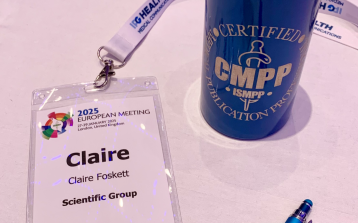From the way we consume social media, to how we use apps to find our way around, we are living in a data-driven world. The data revolution, combined with a gradual shift towards patient centricity, is pushing medicine to be more precise than ever before.
Precision medicine mainly relies on molecular genetic testing and bioinformatics to help clinicians identify the most effective drugs for individual patients.(1-3) But is precision medicine living up to what it set out to do, or are there fundamental challenges keeping it from reaching its full potential?
What is precision medicine?
Precision medicine is an approach to patient care and drug development that integrates the individual’s genetic, medical, environmental, and sociological information to find the most safe and effective treatment for them.(1,4)
One of the first examples of precision medicine was the discovery of blood types at the beginning of the 20th century, enabling physicians to make successful blood transfusions.(1) More recent advances in precision medicine have led to treatment options for specific genomic profiles, which are being used for many cancers and conditions such as cystic fibrosis and spinal muscular atrophy.(1,5,6)
How precision medicine is changing cancer treatment
The inherent heterogeneity of tumors, related to varying somatic or germline mutations, makes it almost impossible to find a one-size-fits-all solution for cancer.(5) Precision medicine shifts the focus to the characterization of the tumor at the molecular and cellular levels,(7) targeting the specific biomarkers for its growth and ultimately eliciting a treatment response when standard-of-care therapies do not.(8) By suppressing the abnormal expression of the proteins responsible for tumor growth,(3) precision medicine interventions have proven to be the only effective options that some patients with lung, breast, gastrointestinal, and other types of cancers have to reduce their disease burden and improve their quality of life.(5)
CAR T-cell therapy is an example of a precision-medicine approach that is revolutionizing cancer treatment in a way that, until recently, would have sounded like science fiction: T cells are collected from the patient and modified with lab-produced chimeric antigen receptors (CARs); these proteins make the T cells more precise so that they bind specifically to cancer cells and eliminate them.(9)
Main challenges of precision medicine
Integration and standardization of multi-omics data
Analyzing complex data can be difficult, especially when genetic sequencing generates such huge amounts of data.(10) The advancement of information systems allows us to store more data than ever before, but we need to start using the data more wisely, which is possible with the help of artificial intelligence. Machine learning algorithms can make clinical phenotyping and disease prediction easier, but the results need to be validated by both clinicians and data scientists.(11) Other challenges related to the integration of data include guaranteeing equity in data generation and treatment, providing technological literacy to patients and healthcare practitioners, and ensuring universal access to digital resources.(10)
Establishing standardized protocols and guidelines for data collection, analysis, and interpretation is key for generating reproducible results in the development of precision therapies.(10) Reliable data depend on the accuracy of the whole data-gathering process, including laboratory handling of samples, whose quality can deeply impact the final result.(10)
Access to genetic sequencing
Sequencing methodologies have become very efficient in the last decades but remain costly as they require specialized personnel and equipment,(1) making routine genetic screening unattainable for some healthcare practitioners.(8,12) Even when there is access, it may be restricted to one or two technologies that don’t allow physicians to fully understand the genetic profile of the patient.(3,5) Ultimately, this can mean that patients miss out on therapeutic options that could improve their outcomes.
Cost-effectiveness of precision medicine therapies
Developing advanced drugs that can only be used by a small percentage of patients significantly raises their cost, limiting access for hospitals, health services, and patients.(8,12) But precision medicine can be cost-effective in the long term, because matching a patient to the most appropriate treatment can reduce the number of treatments used and the costs related to managing adverse events.(12)
The future of precision medicine
Despite setbacks, precision medicine has advanced immensely in recent years, with applications reaching many therapeutic areas. The scientific and medical communities recognize its challenges, mainly related to data management and collection, but have strived to keep evolving this field. Precision medicine is here to stay, and we are safe to assume that soon it will be applied to almost everything healthcare related.
As the treatment paradigm evolves to become more precise, so too does our understanding of what challenges need to be overcome to help precision medicine live up to its potential. At Scientific Group, we have had the opportunity to contribute to increasing the medical community’s understanding of various precision-medicine therapies, including cancer treatments for specific genomic alternations, viral vector gene therapies, and cell-based gene-therapy approaches such as CAR T-cell therapy. Communicating such complex treatments is a challenge, and one we are pleased to be playing a part in to help advance the potential of precision medicine to improve the lives of patients.
References
- MacEachern SJ, Forkert ND. Machine learning for precision medicine. Genome 2021;64:416–25.
- Canzoneri R et al. Genomics and bioinformatics as pillars of precision medicine in oncology. Medicina (B Aires) 2019;79(Spec 6/1):587–92.
- Peck RW. Precision medicine is not just genomics: The right dose for every patient. Annu Rev Pharmacol Toxicol 2018;58:105–22.
- Beger RD et al. Current concepts in pharmacometabolomics, biomarker discovery, and precision medicine. Metabolites 2020;10(4):129.
- Krzyszczyk P et al. The growing role of precision and personalized medicine for cancer treatment. Technology (Singap World Sci) 2018;6(3–4):79–100.
- Goetz LH, Schork NJ. Personalized medicine: motivation, challenges, and progress. Fertil Steril 2018;109:952–63.
- Yates LR et al. The European Society for Medical Oncology (ESMO) Precision Medicine Glossary. Ann Oncol 2018;29(1):30–35.
- Lu CY et al. Precision medicine: affording the successes of science. NPJ Precis Oncol 2023;7:3.
- National Cancer Institute. CAR T Cells: Engineering Patients’ Immune Cells to Treat Their Cancers. Available at: https://www.cancer.gov/about-cancer/treatment/research/car-t-cells Last accessed January 2024.
- Tang A et al. Translational bioinformatics to enable precision medicine for all: Elevating equity across molecular, clinical, and digital realms. Yearb Med Inform 2022;31(1):106–15.
- Hulsen T et al. From big data to precision medicine. Front Med (Lausanne) 2019;6:34.
- Kasztura M et al. Cost-effectiveness of precision medicine: a scoping review. Int J Public Health 2019;64:1261–71.





